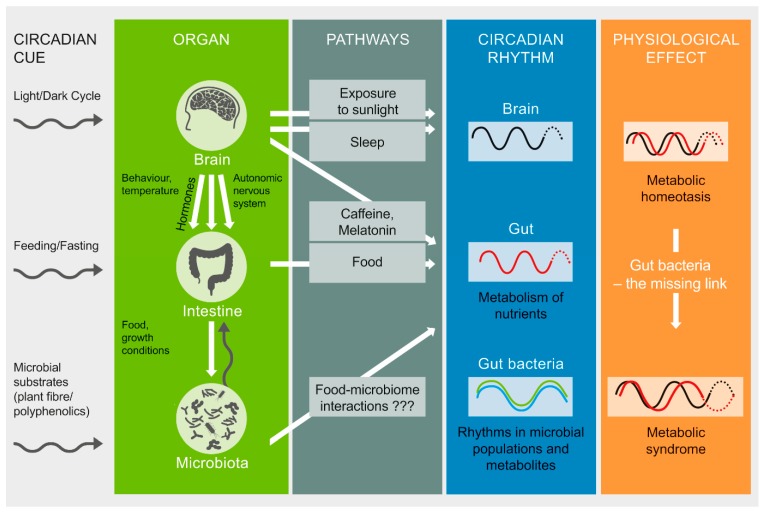Figure 1.
Circadian rhythm, gut microbiota, and metabolism. The light/dark cycle is the Zeitgeber for the central clock in the brain, while signals from the brain entrain peripheral clocks, e.g., in the intestine. Intestinal bacteria also show diurnal fluctuations in terms of their abundance and functions. Host controlled behaviors such as sleep, diet (food composition, timing of eating a meal), light exposure, and stimulants (e.g., caffeine) may potentially affect intestinal rhythms of metabolism. New evidence indicates that gut microbiota influences circadian rhythms, with consequent impact on the metabolic homeostasis of the host (Figure adapted from [1]).

